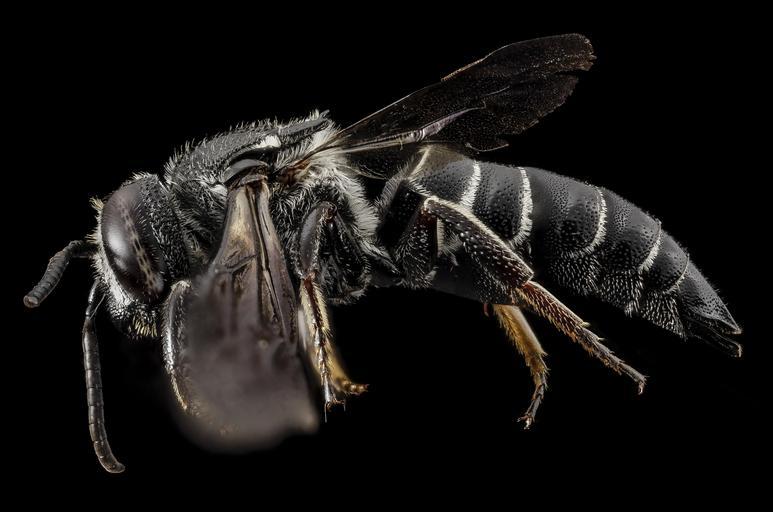MAKE A MEME
View Large Image

| View Original: | Coelioxys_dolichos,_f,_side,_md,_kent_county_2014-07-21-11.44.33_ZS_PMax.jpg (4668x3092) | |||
| Download: | Original | Medium | Small | Thumb |
| Courtesy of: | www.flickr.com | More Like This | ||
| Keywords: eastern neck national wildlife refuge easternnecknationalwildliferefuge fws fish and wildlife service fishandwildlifeservice island chesapeake bay chesapeakebay maryland biml usgs droege usgsbiml zerene stacker zerenestacker stackshot kent county kentcounty bug bugs bee bees pollinator pollinators animal animals animalia arthropod arthropods arthropoda insect insects insecta hymenoptera aculeata anthophila apoidea megachilidae megachilinae megachilini coelioxys coelioxys dolichos coelioxysdolichos taxonomy:binomial=coelioxys dolichos taxonomy:binomial=coelioxysdolichos black background macro outdoor Most Coelioxys look similar (don't you agree?), dulled gray black, heavily pitted, with strong patterns of popping white hair bands. Ah, but here, we have one arrayed in batmobile colors, glossy, midnight black with reduced pitting and purple/black wings. While strictly conjecture, this does make sense since its host (in which nest it lays its eggs) is similarly colored (Megachile xylocopoides) and similar departs from the general Megachile model. How important does host/ cleptoparasite matching matter in bees? I don't know. This bee, the second record for the State of Maryland, moving north with its southern host ~~~~~~~~~~{{{{{{0}}}}}}~~~~~~~~~~ All photographs are public domain, feel free to download and use as you wish. Photography Information: Canon Mark II 5D, Zerene Stacker, Stackshot Sled, 65mm Canon MP-E 1-5X macro lens, Twin Macro Flash in Styrofoam Cooler, F5.0, ISO 100, Shutter Speed 200 The murmuring of bees has ceased; But murmuring of some Posterior, prophetic, Has simultaneous come,-- The lower metres of the year, When nature's laugh is done,-- The Revelations of the book Whose Genesis is June. -Emily Dickinson Want some Useful Links to the Techniques We Use? Well now here you go Citizen: Basic USGSBIML set up: www.youtube.com/watch?v=S-_yvIsucOY USGSBIML Photoshopping Technique: Note that we now have added using the burn tool at 50% opacity set to shadows to clean up the halos that bleed into the black background from "hot" color sections of the picture. www.youtube.com/watch?v=Bdmx_8zqvN4 PDF of Basic USGSBIML Photography Set Up: ftp://ftpext.usgs.gov/pub/er/md/laurel/Droege/How%20to%20Take%20MacroPhotographs%20of%20Insects%20BIML%20Lab2.pdf Google Hangout Demonstration of Techniques: plus.google.com/events/c5569losvskrv2nu606ltof8odo or www.youtube.com/watch?v=4c15neFttoU Excellent Technical Form on Stacking: www.photomacrography.net/ Contact information: Sam Droege sdroege@usgs.gov 301 497 5840 Most Coelioxys look similar (don't you agree?), dulled gray black, heavily pitted, with strong patterns of popping white hair bands. Ah, but here, we have one arrayed in batmobile colors, glossy, midnight black with reduced pitting and purple/black wings. While strictly conjecture, this does make sense since its host (in which nest it lays its eggs) is similarly colored (Megachile xylocopoides) and similar departs from the general Megachile model. How important does host/ cleptoparasite matching matter in bees? I don't know. This bee, the second record for the State of Maryland, moving north with its southern host ~~~~~~~~~~{{{{{{0}}}}}}~~~~~~~~~~ All photographs are public domain, feel free to download and use as you wish. Photography Information: Canon Mark II 5D, Zerene Stacker, Stackshot Sled, 65mm Canon MP-E 1-5X macro lens, Twin Macro Flash in Styrofoam Cooler, F5.0, ISO 100, Shutter Speed 200 The murmuring of bees has ceased; But murmuring of some Posterior, prophetic, Has simultaneous come,-- The lower metres of the year, When nature's laugh is done,-- The Revelations of the book Whose Genesis is June. -Emily Dickinson Want some Useful Links to the Techniques We Use? Well now here you go Citizen: Basic USGSBIML set up: www.youtube.com/watch?v=S-_yvIsucOY USGSBIML Photoshopping Technique: Note that we now have added using the burn tool at 50% opacity set to shadows to clean up the halos that bleed into the black background from "hot" color sections of the picture. www.youtube.com/watch?v=Bdmx_8zqvN4 PDF of Basic USGSBIML Photography Set Up: ftp://ftpext.usgs.gov/pub/er/md/laurel/Droege/How%20to%20Take%20MacroPhotographs%20of%20Insects%20BIML%20Lab2.pdf Google Hangout Demonstration of Techniques: plus.google.com/events/c5569losvskrv2nu606ltof8odo or www.youtube.com/watch?v=4c15neFttoU Excellent Technical Form on Stacking: www.photomacrography.net/ Contact information: Sam Droege sdroege@usgs.gov 301 497 5840 | ||||